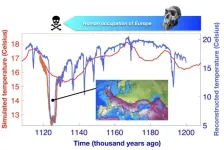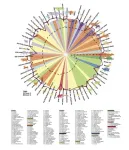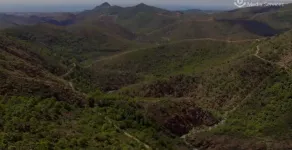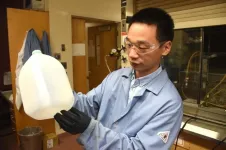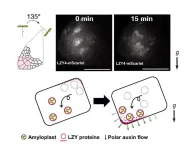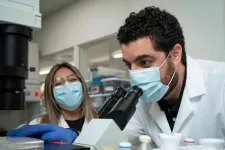(Press-News.org) In this Special Issue of Science, three Reviews, a Policy Forum, and a Perspective highlight Australia’s exceptional exposure to the risks of climate change and ecosystem degradation. Australia is home to Earth’s most ancient ecosystems and oldest continuous indigenous cultures, which have survived for more than 60,000 years. However, the continent’s unique ecosystems and cultural history have proved vulnerable to waves of European colonization and its associated social and environmental impacts. Ongoing climate change and the exclusion of Indigenous Peoples and their specific knowledge of land management have led to extreme wildfire and flooding events, marine ecosystem degradation, biodiversity loss, and the disproportionate exposure of Indigenous Peoples to these hazards.
Although Australia’s surviving Indigenous cultures have adapted their ecological knowledge across climatic ages, European colonization and dispossession have severely curtailed Indigenous Peoples’ ability to adjust to climate change. What’s more, the system currently in place does not allow for Indigenous knowledge to help guide policies aimed towards addressing the current climate crisis. In one Review, Veronica Matthews and colleagues provide an overview of existing studies on Indigenous-led contemporary climate and health initiatives and argue for the need to attend to issues of restorative justice as a basis for respectful and constructive valuing of Indigenous culture and knowledge to inform climate change mitigation and adoption strategies.
Other papers in the Special Issue focus on integrating Indigenous water science to ensure sustainable and just water management policy; new strategies codeveloped with Indigenous Australians to conserve Australia’s iconic marine ecosystems; rethinking Australia’s wildfire management; and a Review on the loss of Australia’s terrestrial biodiversity.
END
Special Issue: Australia
2023-08-10
ELSE PRESS RELEASES FROM THIS DATE:
Global ecosystem water use efficiency has stalled since 2001
2023-08-10
Increases in global ecosystem water use efficiency – the ratio between carbon assimilation to water evapotranspiration – have stalled since 2001 due to a rising vapor pressure deficit, according to a new study. The findings highlight one way that the adverse effects of our warming climate may undermine human reliance on nature-based climate solutions to achieve carbon neutrality. The rapid rise of atmospheric carbon dioxide (CO2) has led to substantial changes in global terrestrial carbon and water cycles. One of these impacts has been a generalized increase in ecosystem water use efficiency (WUEeco). On a global scale, WUEeco plays ...
A climate-orchestrated early human love story
2023-08-10
A new study published in the journal Science by an international team finds that past changes in atmospheric CO2 and corresponding shifts in climate and vegetation played a key role in determining when and where early human species interbred.
Modern-day people carry in their cells a small quantity of DNA deriving from other human species, namely the Neanderthals and the elusive Denisovans. Back in 2018, scientists announced to the world the discovery of an individual [Figure 1], later nicknamed Denny, who lived 90,000 years ago and who was identified as a daughter to a Denisovan father and a Neanderthal mother [Slon et al. 2018]. Denny, along with fellow mixed-ancestry ...
How a massive North Atlantic cooling event disrupted early human occupation in Europe
2023-08-10
A new study published in the journal Science finds that around 1.12 million years ago a massive cooling event in the North Atlantic and corresponding shifts in climate, vegetation and food resources disrupted early human occupation of Europe.
The study published by an international group of scientists from the UK, South Korea and Spain presents observational and modelling evidence documenting that unprecedented climate stress changed the course of early human history.
Archaic humans, known as Homo erectus moved from Africa into central Eurasia around 1.8 million years. From there on they spread towards western Europe, reaching the Iberian peninsula around 1.5 million ...
Global consortium creates large-scale, cross-species database and universal ‘clock’ to estimate age in all mammalian tissues
2023-08-10
Scientists at UCLA David Geffen School of Medicine and UCLA Health led an international research team that published two articles detailing changes in DNA – changes that researchers found are shared by humans and other mammals throughout history and are associated with life span and numerous other traits.
“We've discovered that the life spans of mammals are closely associated with chemical modifications of the DNA molecule, specifically known as epigenetics, or more accurately, methylation. In essence, mammals with longer life spans exhibit more pronounced DNA methylation landscapes, whereas those ...
Extreme cooling ended the first human occupation of Europe
2023-08-10
Paleoclimate evidence shows that around 1.1 million years ago, the southern European climate cooled significantly and likely caused an extinction of early humans on the continent, according to a new study led by UCL researchers.
Published in the journal Science, the team of researchers discovered the occurrence of previously unknown extreme glacial conditions around 1.1 million years ago. The glacial cooling pushed the European climate to levels beyond what archaic humans could tolerate, emptying the continent of human populations.
The oldest known human remains in ...
An unexpected way to upcycle: Plastic waste transforms into soap
2023-08-10
A team led by Virginia Tech researchers has developed a new method for upcycling plastics into high-value chemicals known as surfactants, which are used to create soap, detergent, and more.
Plastics and soaps tend to have little in common when it comes to texture, appearance, and, most importantly, how they are used. But there is a surprising connection between the two on a molecular level: The chemical structure of polyethylene — one of the most commonly used plastics in the world today — is strikingly similar ...
The positional transmitter of statoliths unveiled: It keeps plants from getting lazy
2023-08-10
Plants orient their organs in response to the gravity vector, with roots growing towards gravity and shoots growing in the opposite direction. The movement of statoliths responding to the inclination relative to the gravity vector is employed for gravity sensing in both plants and animals. However, in plants, the statolith takes the form of a high-density organelle, known as an amyloplast, which settles toward gravity within the gravity sensing cell. Despite the significance of this gravity sensing mechanism, the exact process behind it has eluded scientists ...
City of Hope researchers develop a CAR T cell therapy for advanced ovarian cancer
2023-08-10
LOS ANGELES — There are currently few effective treatment options for patients with recurrent ovarian cancer and other solid tumors, but City of Hope researchers are trying to change that.
Researchers with City of Hope, one of the largest cancer research and treatment organizations in the nation, have published preclinical research in Nature Communications demonstrating that a chimeric antigen receptor (CAR)-engineered T cell therapy worked against ovarian cancer in the laboratory and in preclinical models.
“City of Hope’s ...
Threatened grey-necked rockfowl's habitat even smaller than expected, study finds
2023-08-10
SAN DIEGO (AUG. 10, 2023) — A new study on gray-necked rockfowl has found a much smaller range of suitable habitat for this elusive African bird than was previously assumed, and may warrant a downgrade in its conservation status.
Scientists from the Cameroon Biodiversity Association (CAMBIO) in Cameroon, in partnership with San Diego Zoo Wildlife Alliance, set out to better understand how much suitable habitat remains for the rockfowl, and where the birds can still be found.
Understanding suitable habitat and its extent is crucial for protecting species. However, scientists have limited knowledge ...
Louisiana Obesity Society to host inaugural conference on Aug. 12 in New Orleans
2023-08-10
Physicians, psychologists, advanced practice providers, dietitians, and others who are committed to treating and preventing obesity in Louisiana have come together to formally launch the Louisiana Obesity Society, a new statewide professional organization. The Louisiana Obesity Society will be hosting its inaugural annual conference in conjunction with the Louisiana Chapter of American Society of Metabolic and Bariatric Surgery on Saturday, Aug. 12, at the Renaissance New Orleans Arts Warehouse District Hotel in New Orleans.
The Louisiana Obesity Society was created to support providers treating obesity through education and networking. The society will also advocate ...

